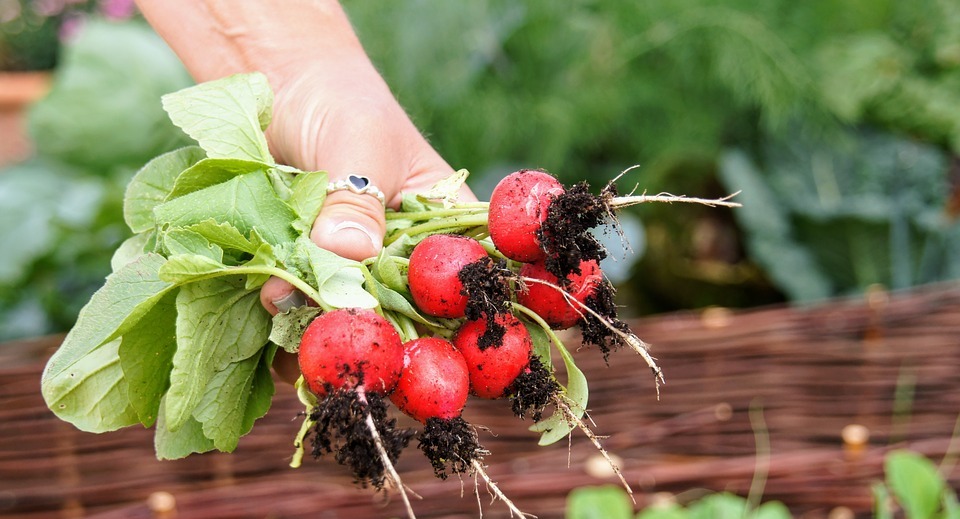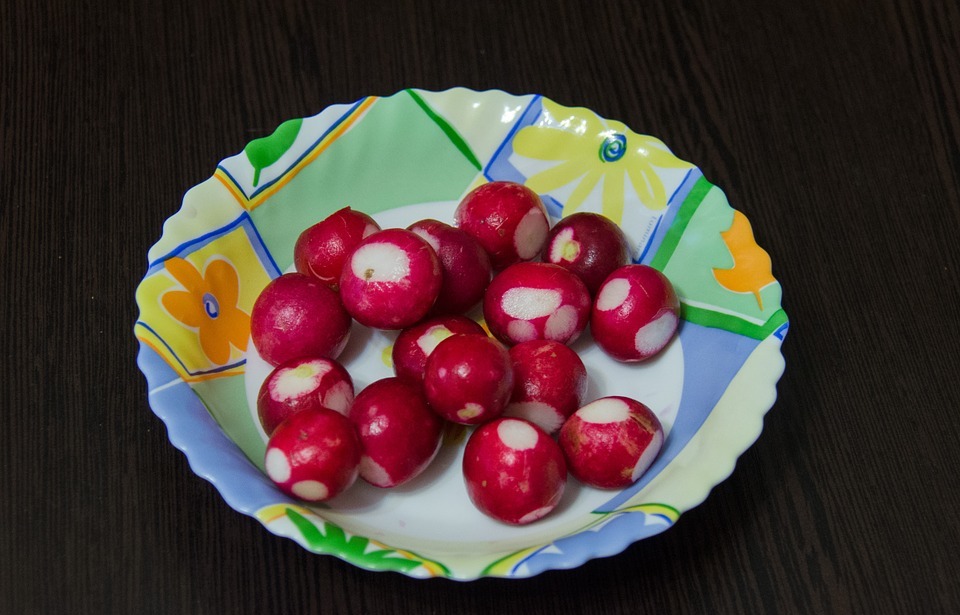As a dog owner, I’m always looking for ways to keep my furry friend happy and healthy. Treats are a big part of that, and I love sharing snacks with my dog, Buddy. But, as any responsible pet parent knows, there's always that nagging question – is it actually safe? Today, we're tackling the radish, a vibrant little root that often pops up in my own kitchen. Can dogs safely eat them?
Part 1: The Radish - A Colorful History

From Asia to Your Salad Bowl
Radishes, those crunchy little gems, have been around for a long time. They're thought to have originated in Asia, and their history stretches back centuries. They've been a part of diets worldwide, adding a delightful crunch to salads, stir-fries, and even enjoyed raw as a simple snack.
Beyond the Crunch: A Nutritional Powerhouse
Beyond their texture, radishes are packed with nutrients. They're a decent source of vitamin C, potassium, and folate, which play vital roles in our bodies. But for our four-legged friends, are these little bundles of nutrition a good thing?
Part 2: Can Dogs Eat Radishes? The Verdict

Generally Safe, But Not Without Cautions
The good news is, yes, dogs can generally eat radishes. They're not toxic and won't cause serious harm. But just like with humans, moderation is key. And there are a few important things to keep in mind.
The Importance of Moderation: Don't Go Overboard
Radishes, while low in calories, are high in fiber. Eating too many can lead to digestive upset, making your dog uncomfortable with diarrhea or gas. A small, bite-sized piece is usually enough for a smaller dog, while a larger dog might be able to handle a couple of small pieces.
The Greens: A Potential Problem
While the radish bulb is generally safe, the leafy greens are a different story. They contain a compound called glucosinolates, which can be toxic to dogs in large amounts. This can lead to some pretty unpleasant symptoms like vomiting and diarrhea. It’s best to stick with the root and avoid the greens altogether.
Part 3: My Dog, Buddy, and His Radish Adventures

Buddy, my terrier mix, is a curious dog with a big appetite. He’s always eager to try new things, and I've been careful about what I give him to eat. But I've experimented a little with radishes, and it's been a learning experience.
The First Taste: A Cautious Approach
The first time I tried giving Buddy a radish, I was a bit nervous. I gave him a tiny piece, just a sliver. He sniffed it cautiously, then took a tentative lick. To my relief, he seemed to like it! He didn't gobble it down, but he chewed it slowly and seemed content. I've given him a piece or two since then, always in moderation, and he's never shown any signs of digestive upset.
Important Lessons Learned: Every Dog Is Different
Buddy's experience taught me a valuable lesson: every dog is different. What might be perfectly fine for one dog could be a problem for another. It's always best to err on the side of caution and start with a small amount. Watch your dog carefully for any signs of discomfort, and if you see anything unusual, stop feeding them radishes.
Part 4: Possible Benefits of Radishes for Dogs
While radishes aren't a superfood for dogs in the way they are for humans, they can offer a few benefits.
A Crunchy, Healthy Treat: A Refreshing Snack
Radishes can be a refreshing treat for dogs, especially on hot days. They provide a bit of a crunch, which can help clean teeth and freshen breath. Plus, they're low in calories and fat, so they won't add too many extra pounds. Just remember, moderation is key!
Potential for Digestive Health: A Fiber Boost
Some people believe that the fiber in radishes can help with digestive health in dogs. It can promote regularity and help with occasional constipation. However, it's important to note that this hasn't been scientifically proven, and it's always best to consult with your veterinarian about any digestive issues.
Part 5: Risks and Cautions When Giving Dogs Radishes
While radishes are generally safe, there are a few potential risks to be aware of.
Digestive Upset: The Most Common Issue
The most common side effect of giving radishes to dogs is digestive upset. This can include diarrhea, gas, and vomiting. The fiber in radishes can sometimes be difficult for dogs to digest, especially if they're not used to it. If you notice any of these symptoms, stop giving your dog radishes and consult with your veterinarian.
Choking Hazard: Cut Them Small!
Radishes can be a choking hazard for dogs, especially smaller breeds. It's essential to cut them into very small pieces before giving them to your dog. And always supervise them when they're eating anything, even small treats.
Potential for Allergies: A Rare But Possible Issue
While rare, some dogs may have allergies to radishes. This can cause symptoms like itching, hives, swelling, or even difficulty breathing. If you suspect your dog is having an allergic reaction, seek immediate veterinary care.
Part 6: Introducing Radishes to Your Dog Safely
If you're considering giving your dog a taste of radish, here's a step-by-step guide to make the experience safe and enjoyable.
Step 1: Start Small
Never give your dog a whole radish! Start with a tiny piece, no bigger than a pea. This allows you to observe their reaction without overwhelming their system.
Step 2: Watch and Wait: Observe Their Reaction
After giving your dog a small piece, observe them carefully. Look for any signs of discomfort, such as coughing, gagging, vomiting, or diarrhea. If they seem fine, you can gradually increase the size of the piece over a few days.
Step 3: Listen to Your Dog: Pay Attention to Their Body Language
The most important thing is to listen to your dog. If they seem to enjoy the radish, great! If they show any signs of dislike or digestive upset, stop giving it to them. There's no need to push it if they don't like it.
Part 7: Alternative Healthy Treats for Dogs
If you're looking for other healthy and safe treats for your dog, there are plenty of options beyond radishes. Here are a few ideas.
Fruits and Vegetables: A Rainbow of Options
Many fruits and vegetables are safe for dogs, including apples, bananas, blueberries, carrots, and cucumbers. Just make sure to remove any seeds or pits before giving them to your dog, and always choose organic options whenever possible.
Dog-Specific Treats: Commercially Made Options
There's a wide range of commercially-made dog treats available, from healthy chews to tasty biscuits. Look for treats that are made with high-quality ingredients and are free of artificial colors, flavors, and preservatives.
Homemade Treats: A Fun and Customizable Option
You can also make your own dog treats at home using simple ingredients like peanut butter, oats, and bananas. There are tons of recipes online, and you can customize them to your dog's preferences.
Part 8: FAQs about Dogs and Radishes
Q1: Can Puppies Eat Radishes?
It's best to avoid giving radishes to puppies, especially very young ones. Their digestive systems are still developing, and they may not be able to handle the fiber in radishes. If you're unsure, always consult with your veterinarian.
Q2: Can Pregnant or Nursing Dogs Eat Radishes?
It's best to err on the side of caution and avoid giving radishes to pregnant or nursing dogs. There's no evidence that they are harmful, but it's always better to stick to a familiar diet during these sensitive times.
Q3: Can I Give My Dog Cooked Radishes?
Yes, you can give your dog cooked radishes. Cooking them can help break down the fiber, making them easier to digest. However, it's important to avoid adding any seasonings or oils to the cooked radishes.
Q4: Can I Give My Dog Radish Greens?
As mentioned earlier, it's best to avoid giving your dog radish greens. They contain glucosinolates, which can be toxic to dogs in large amounts.
Q5: What if My Dog Eats a Radish and Seems Sick?
If your dog eats a radish and seems sick, it's best to contact your veterinarian immediately. They can assess the situation and provide advice on what to do.
I hope this article has provided you with a clear understanding of whether or not dogs can safely eat radishes. As always, it's crucial to be mindful of your individual dog's needs and preferences. If you have any concerns, consult with your veterinarian. Happy snacking!
Everyone is watching
-

Can Dogs Eat Bananas? A Guide to Safe Treats
DOGS & PUPPIESThis comprehensive guide will delve into the world of canine nutrition, focusing on the popular question: can ...
-

Can Dogs Eat Oranges? (Is It Safe or Toxic?)
DOGS & PUPPIESThis article delves into the question of whether dogs can safely consume oranges. We'll explore the nutrition...
-

Can Dogs Eat Grapes? The Shocking Truth About This Fruit
DOGS & PUPPIESThis article delves into the controversial topic of grapes and dogs, exploring the potential dangers associate...
-

Why Do Dogs Eat Poop? Understanding Coprophagia in Dogs
DOGS & PUPPIESThis article delves into the perplexing phenomenon of coprophagia, the act of eating faeces, in dogs. We explo...
-

Can Dogs Eat Shrimp? A Guide to Safety and Risks
DOGS & PUPPIESThis comprehensive guide dives into the world of shrimp and dogs, exploring the potential benefits and risks a...
